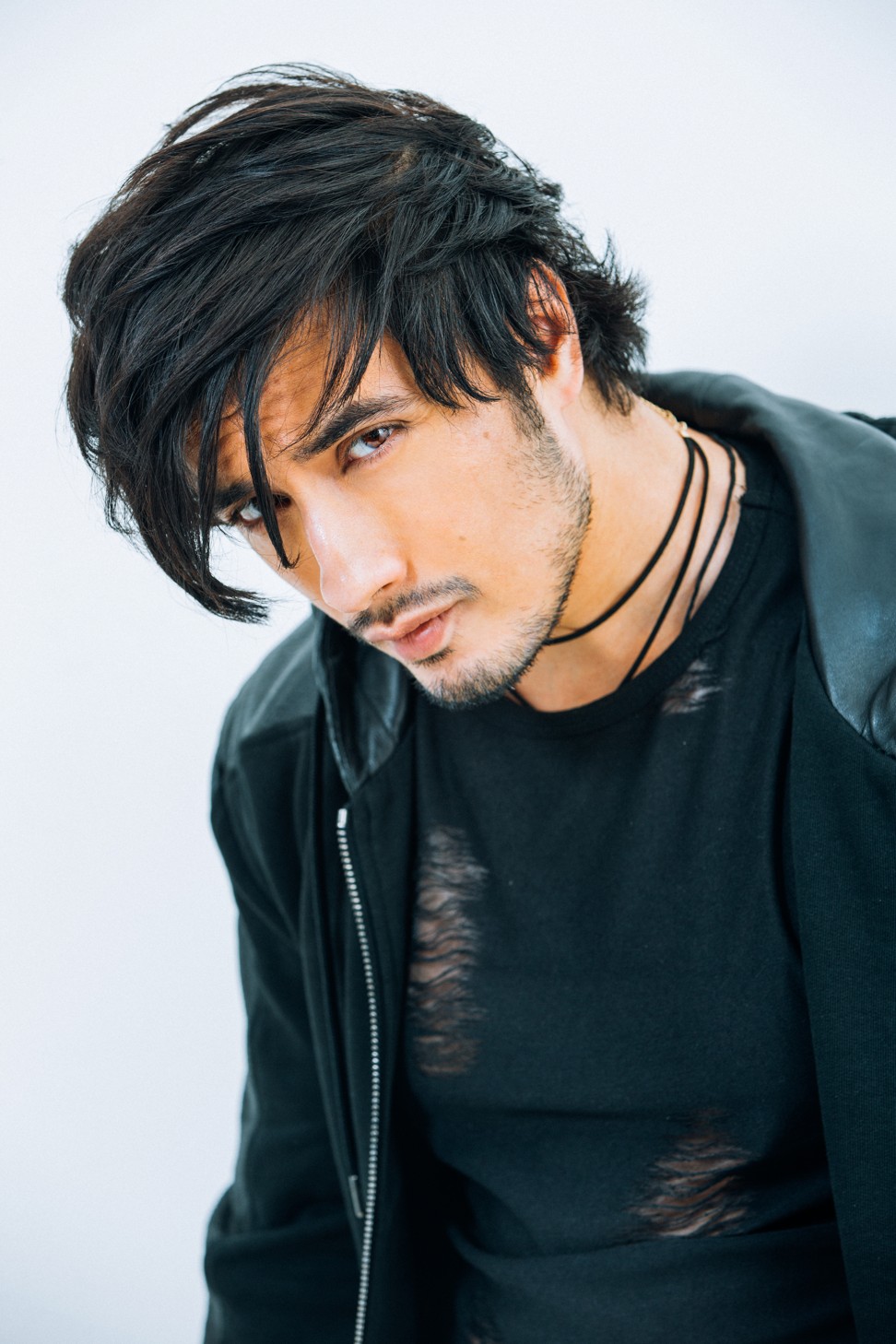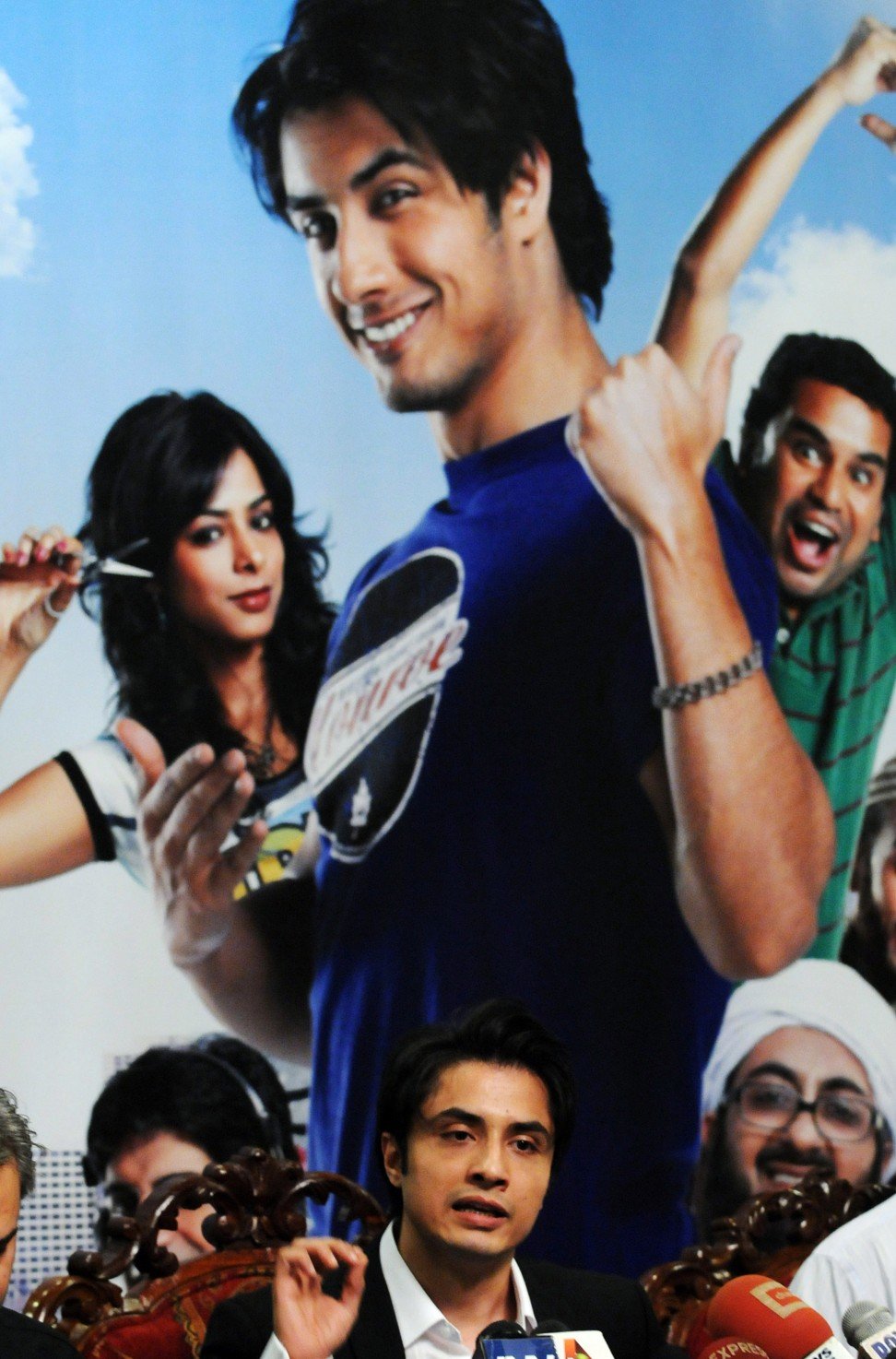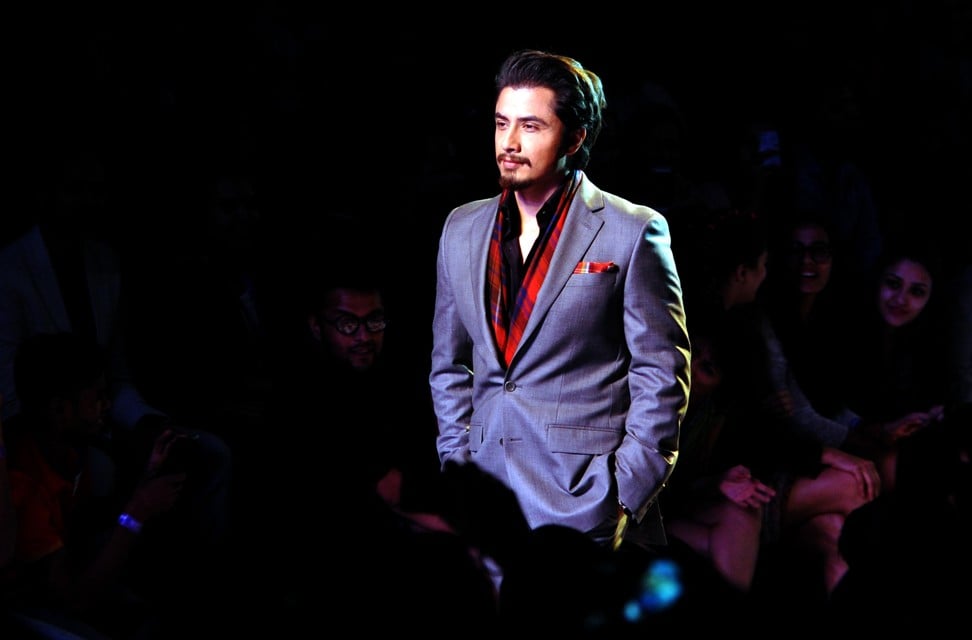
Ali Zafar talks Bollywood stardom, reviving his music career and the importance of mental health
- Pakistani superstar Ali Zafar looks to move on with his life, and has big plans for the future, after he was accused of sexual harassment in 2018
- He believes it’s time celebrities were more candid about their anxiety and depression
One of Pakistan’s most recognisable entertainers, singer and film star Ali Zafar is busting some moves. Dressed in fashionably frayed jeans and a black muscle shirt, he kicks and jumps in the video, dancing to the beat of the music he has written for this year’s Pakistan Super League cricket competition.
Zafar posted the energetic dance video on Instagram in February. In an astute marketing move, he invited anyone interested in dancing with him in the final music video to send in an audition clip.
The 39-year-old singer-songwriter, actor, producer and screenwriter has reached remarkable heights in South Asia’s film industry, in India’s Bollywood and in Pakistan’s cinema hub, Lollywood.
Having weathered an extremely public allegation of sexual harassment, the multitalented artist has continued with both his music and acting, and his legions of fans have not deserted him: he has a stream of 3.8 million followers on Instagram and 2.3 million on Twitter.

Based in the Pakistani city of Lahore, Zafar first began attracting attention on television, in a series called Kollege Jeans in 1999 and then Landa Bazar (Flea Market) in 2002. The following year, his chart-topping single Channo from his debut album Huqa Pani was released. The album eventually sold more than five million copies worldwide.
After releasing three albums, Zafar segued into film acting south of the border, starting with the critically acclaimed Bollywood comedy Tere Bin Laden (Without You, Bin Laden), released in 2010. In this Bollywood dig at the United States’ “war on terror”, Zafar plays a reporter who sells a video of an Osama bin Laden lookalike he has discovered, to build his journalistic profile and smooth his migration to the US.
“After releasing my second studio album Masty, I began receiving offers for films,” Zafar recalls. “Out of all the scripts, Tere Bin Laden appealed to me the most.”
He went on to land roles in seven Bollywood films, including Mere Brother Ki Dulhan and London, Paris, New York. His only role in a Pakistani film so far came in 2018. A romance, Teefa in Trouble depicts the journey of a gangster, Teefa, who is assigned to kidnap a woman for an arranged marriage, and was a commercial success.
Zafar also produced Teefa in Trouble through his company, Lightingale Productions, and he is slated to return in a sequel, Teefa in Trouble 2.

He recalls that on his first visit to Bollywood, he discovered film stars were the real stars. “In Pakistan, however, the concept of a film industry was vague, so people revered established singers instead,” he says.
Zafar says he relishes playing challenging roles. “I find a lifeless character uninspiring, someone who lacks variation, charisma and motivation,” he explains. “I would not consider anything easy as my cup of tea. I like challenging myself as an artist and playing roles that have substance in them.”
A character’s age, he adds, is no barrier. “I personally would not have any reservations experimenting with nuanced characters, be it of any age bracket. I can perform them with ease as long as they are appealing and different from who I am as a person.”
Married, with a young son and daughter, the award-winning entertainer expects his new album, his first in nine years, to be released this year. Despite his accomplishments, though, the popular artist has faced tribulations along the way.

In 2018, Pakistani singer Meesha Shafi alleged on Twitter that Zafar had sexually harassed her. “I have been subjected, on more than one occasion, to sexual harassment of a physical nature at the hands of a colleague from my industry: Ali Zafar,” she wrote, as a response to the #MeToo movement.
Zafar flatly repudiated her claims, saying: “I categorically deny any and all claims of harassment lodged against me by Ms. Shafi.”
A Lahore court dismissed the sexual harassment case, and Zafar sued Shafi for damages. The legal drama took a toll on Zafar, who broke down during a subsequent interview on Pakistani television, wiping away tears and saying his career had been ruined.
Asked by the Post about the controversy, Zafar declined to comment.
What Zafar does say is that he believes women are undervalued in Pakistan and elsewhere, and steps should be taken to address gender inequality. “Since we live in a patriarchal society, women face a lot more obstacles in Lollywood and otherwise in society,” he says. “We must learn from their problems and think of ways to create a better world for them.”

He says women should be given their due credit, space and freedom to practise what they want. “Why can’t we respect people in general? Humanity comes before anything else and we are all in this together. We should love and respect one another,” he says.
Born in Lahore, Zafar has two brothers. His parents were both university professors and his father hoped he would join the civil service. But Zafar was drawn to the entertainment industry. Earlier this year he announced the launch of Lightingale Records to nurture new Pakistani musical talent.
“Through this endeavour I will personally mentor, produce, record and showcase talent of young and upcoming artists,” he said in a statement. “Our goal is to bring to light at least 10 new artists this year and give you some great songs to cherish. If you have any ideas that can augment this venture, do share.”
Zafar has had a busy few months. He wrote his own song for this year’s Pakistan Super League cricket competition, for which he had previously written official league anthems that became hugely popular. His 2020 song for the event soon sparked a clash with another singer-songwriter, Ali Azmat, who sang this year’s official anthem.

Azmat reportedly suggested that a rival singer had paid bloggers to denigrate his anthem, although he did not directly accuse Zafar.
According to Pakistani media, Zafar responded by saying that he loved Azmat, and Azmat should “be happy”.
Zafar says some criticism is inevitable, and if it were possible, he would prefer to ignore any “unnecessary conversation or undesired negative energy” aimed at bringing him down. “The higher you go, the more jealous they are. If so many people love you, others will also despise you, but that is OK. I take that as a learning curve.”
Pakistan’s film industry is smaller than it’s massive Bollywood counterpart, and there can be fierce competition for plum roles, but Zafar is happy to compete for roles and values his fellow actors, “who I admire and get to learn so much from”.
He wants Lollywood to be more experimental, though. Filmmakers could lift their eyes from the bottom line occasionally and try something other than tried and tested romantic comedies, believes. He blames the commercialism of the industry for the current crop of largely monotone films made in Pakistan.
“Commercialisation has damaged many aspects of our lives, not only our entertainment industry,” he says. “The food we eat, the thoughts we think and the texts we read across media platforms stem from commercialisation.”
Some in the industry see a connection between mental illness and Pakistan’s show business world, yet few celebrities are candid about their anxiety and depression.

“Mental health is an extremely important subject that we need to discuss openly,” Zafar says.
“Our responsibility is to make a healthy society where tolerance is the norm and people can agree to disagree without wanting to kill each other,” he adds. “Those who are actually suffering from mental illness and cannot help themselves should consider paying health professionals a visit. There is no harm in seeking therapy.”

